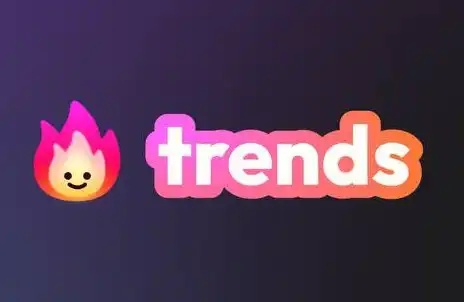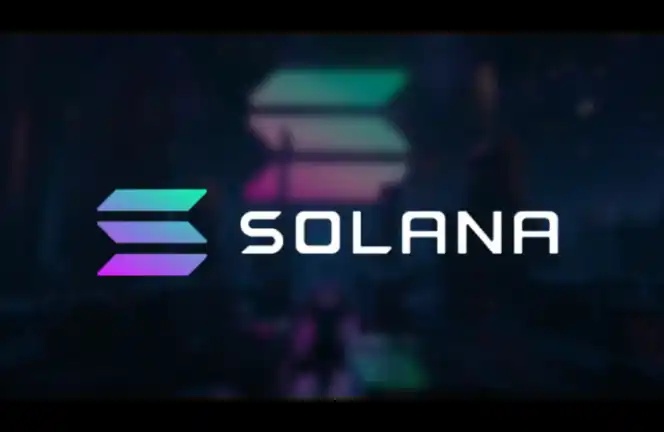Messari predicts new opportunities in 2024, which projects can position themselves for success?
The encryption data and research institution Messari recently released "Messari Theses 2024", in which Messari summarized the top ten investment trends for 2024. In addition to DePIN and AI, the report also emphasized optimism for several emerging narratives, including DeSoc and DeSci. (Although this is a new direction predicted by Messari at the end of 2022, it has not yet fully gained momentum in 2023.) These narratives focus on connecting the concept of Web3 with the social and technological fields of the real world. BlockBeats has compiled a list of protocols and projects worth paying attention to in the DeSoc and DeSci tracks.
Related reading: "Messari's 2024 Investment Forecast: Bearish on ETH, Bullish on AI, DePIN, and DeSci".
DeSoc
In 2022, DeSoc (decentralized social) is also a promising field according to Messari, with traceable potential for value growth. On the one hand, from the perspective of Web3's practical applications, decentralized social has always been a compelling use case. The DeSoc protocol connects personal account information as NFTs with digital content, and all account and content relationships (social graph) are open and available for developers to read. Anyone can build frontend applications based on the social graph to achieve various functions. This breaks the technology stack of traditional platforms, and the revolutionary impact of resistance to censorship and composability on traditional social platforms will continue.
On the other hand, in May 2022, Vitalik Buterin introduced the concept of "SBT (Soul Binding Token)" in his co-authored paper "Decentralized Society: Searching for the Soul of Web3". SBT is considered as a fundamental building block in Web3 and DeSoc (Decentralized Society). In Vitalik's vision, DeSoc is a bottom-up community aimed at driving Web3 towards hyper-financialization and creating a more inclusive, democratic, and decentralized social system.
DeSoc is still in the early stages of development, but some protocols and projects are rapidly evolving into viable consumer application infrastructure. BlockBeats has compiled the four most popular social graph protocols and the front-end applications built on them.
Source: Messari
Lens(Hey、Phaver、 Orb)
Lens Protocol is a Web3 social graph protocol built on Polygon, with NFT as its core element. Users hold their own graph NFT (Profile NFT) through their wallets to publish content and achieve ownership. These contents are then stored on decentralized storage infrastructures such as Arweave and IPFS, and the content links are updated to the user's graph NFT. At the same time, all social behaviors and relationships of users are saved in the form of NFT on the Polygon chain. Different graph NFTs interact and connect through a series of fixed modules.
Related reading: "Lens or Nostr? Find the ultimate solution for future social media".
Lens Protocol upgraded to V2 mainnet in November, which will increase Lens' speed by at least 2 times and provide a more scalable system. Due to the open and decentralized underlying architecture, Lens Protocol has not only applications developed by the project team itself, but also other third-party applications and several compatible decentralized social technology stacks. Popular applications include Hey, Phaver, and Orb.
Hey.xyz
Hey.xyz (formerly Lenster) is a decentralized and permissionless social media application, similar to Twitter, created during the Lens hackathon in March 2022. Users can connect their graph NFTs with other users on Hey.xyz, or join various communities for commenting, co-creation, governance, and other interactions. Regular users can freely browse the content on Hey.xyz, but interaction requires holding a graph NFT.
Phaver
Phaver is a mobile application built on Lens, with all standard social features. The "Web2.5" mobile application of Phaver was launched during the mainnet of the Lens protocol in May 2022, allowing anyone to register with a familiar Web2 login name without the need for a wallet, gradually guiding users to join Web3. As of September 2023, Phaver's application has been downloaded over 250,000 times and occupies the majority of the mobile application posts on the Lens protocol.
When Lens users post on Phaver, they can choose to broadcast it on the chain to Lens or only post it on Phaver. Lens posts cover audiences beyond Phaver in all other Lens applications and reside on the chain, and are immutable, while Phaver posts allow editing and deletion. In both cases, users will receive point rewards for their posts on Phaver. Similarly, if an account is associated with Phaver, any posts published on other Lens clients will be displayed on Phaver and accumulate points.
On October 5th, Phaver completed a $7 million financing round with participation from Polygon Ventures, Nomad Capital, and others. The new funds will be used to expand the team, develop products, and establish other partnerships.
Orb
Orb is a community-centered Web3 social application with chat and community features. The chat feature allows users to connect and communicate with friends, while the community feature allows users to join groups of like-minded people. Orb was launched as a side project during Graph Day in San Francisco in June 2022 and was initially a professional network supported by on-chain credentials (a web3 version of LinkedIn), quickly gaining attention among Lens users. Orb's communities feature is built on the ERC-6551 standard, which allows each NFT to have its own ERC-4337 smart contract wallet, capable of holding other NFTs and tokens, expanding the concept of digital ownership.
Orb concluded its closed beta testing in December 2022. On September 21, 2023, it completed a $2.3 million funding round led by ArkStream Capital, Superscrypt, Founders, Inc., Foresight Ventures, Aave Companies, Aave Companies, and Lens Protocol founder Stani Kulechov, as well as Polygon co-founder Sandeep Nailwal.
Farcaster(Warpcast、Yup、Alphacaster)
Farcaster is a network-based social graph founded by Dan Romero and Varun Srinivasan in Silicon Valley. Both of them previously held senior positions at Coinbase. Users can connect their wallet addresses on Farcaster to display their NFTs and use them as proof of past actions. They can even build client applications on it to broadcast messages on the Farcaster network and read messages from any user. Vitalik Buterin is a heavy user of Farcaster and often posts updates on it, with a much higher frequency than on Twitter.
Related reading: "Why did Vitalik choose Farcaster? The vision, reality, and potential opportunities of decentralized social networking."
In July 2022, Farcaster completed a $30 million seed round of financing led by A16z. On October 12th of this year, Farcaster co-founder Dan Romero announced that after three years of development, Farcaster has achieved 100% permissionless use. Now, any user with internet access and Ethereum can freely register and use Farcaster without relying on any other individuals or organizations.
The majority of Farcaster's ecosystem consists of off-chain applications, with only DID (FID account, ENS) and storage signature contracts on-chain. This can to some extent reduce development costs and user interaction barriers.
Warpcast
The official client of Farcaster is Wrapcast, which has a similar overall usage habit to Twitter, with some Web3 related topic tags and on-chain hot data tracking added. Users can choose to connect their accounts with commonly used Ethereum addresses, so their friends can see their recent NFT transactions and mint records.
Yup
Yup is a social content aggregator that can link Lens, Twitter, Farcaster, and bluesky into one app. Users can publish content to multiple linked platforms at once and receive social push notifications from multiple linked platforms. Yup raised a total of $3.5 million in a funding round led by Distributed Global in October 2021.
On November 17th, Yup's mobile app was launched on the App Store.
Alphacaster
Alphacaster is a DAO community voting governance tool, which is divided into two categories: DAOs and NFTs. The community is classified based on the type of user wallet assets, and only those who hold specified assets can speak in the corresponding community.
Deso(Desofy、Diamond、DeSocialWorld)
DeSo is a Layer 1 blockchain designed for building and expanding decentralized social media applications, aiming to decentralize social media and scale storage-intensive applications to billions of users. DeSo aims to provide an open-source platform that allows creators on the DeSo platform to benefit from decentralized social media, own their content, and profit from it. The economic operation is designed to create a win-win situation for both the creators and users of the platform.
DeSo announced the completion of a $200 million financing in September 2021, which was completed by selling DESO Tokens. Participants included a16z, Sequoia Capital, Social Capital, TQ Ventures, Coinbase Ventures, and Reddit co-founder Alexis Ohanian. In September 2022, DeSo announced integration with MetaMask, allowing MetaMask users to seamlessly create decentralized social identities. In February of this year, DeSo launched the cross-chain trading service MegaSwap, which supports token exchange between different blockchains and allows users to store tokens in self-custody wallets.
Related reading: "In-depth Deso: Hybrid Pow Consensus, Social Graph, DID and Infinite State Application Map".
Desofy
Desofy is the first decentralized social media mobile application built on the DeSo blockchain. Desofy provides creators with the opportunity to directly receive rewards in the form of "diamonds" (social tips) from users. Users can send "diamonds" or any amount of USD to creators to evaluate their work. The entire process does not involve any intermediaries, ultimately helping creators obtain the true value of their work.
Each user on Desofy has a dedicated "Creator Coin" in their personal profile, which can be bought and sold by anyone. The price of these coins may fluctuate based on the number of buyers and sellers. Therefore, creators who produce high-quality content can have more valuable coins, which is another way for them to increase their value and generate more income. Desofy enables creators to build communities using social tokens. By using social tokens, users can interact more with their followers and set up advanced features such as one-on-one personal chats and early access to music.
Diamond
DeSci

ResearchHub
Molecule
VitaDAO
GenomesDAO
GenomesDAO aims to promote the development of genomics research and innovative drugs while ensuring personal privacy. By purchasing an NFT from GenomesDAO, users will receive a genome sequencing toolkit. The information is sent back to the GenomesDAO team and securely stored. In the future, the DAO can sell this anonymous information to improve drug discovery and other healthcare work.
Welcome to join the official BlockBeats community:
Telegram Subscription Group: https://t.me/theblockbeats
Telegram Discussion Group: https://t.me/BlockBeats_App
Official Twitter Account: https://twitter.com/BlockBeatsAsia




 Forum
Forum Finance
Finance
 Specials
Specials
 On-chain Eco
On-chain Eco
 Entry
Entry
 Podcasts
Podcasts
 Activities
Activities
 OPRR
OPRR











